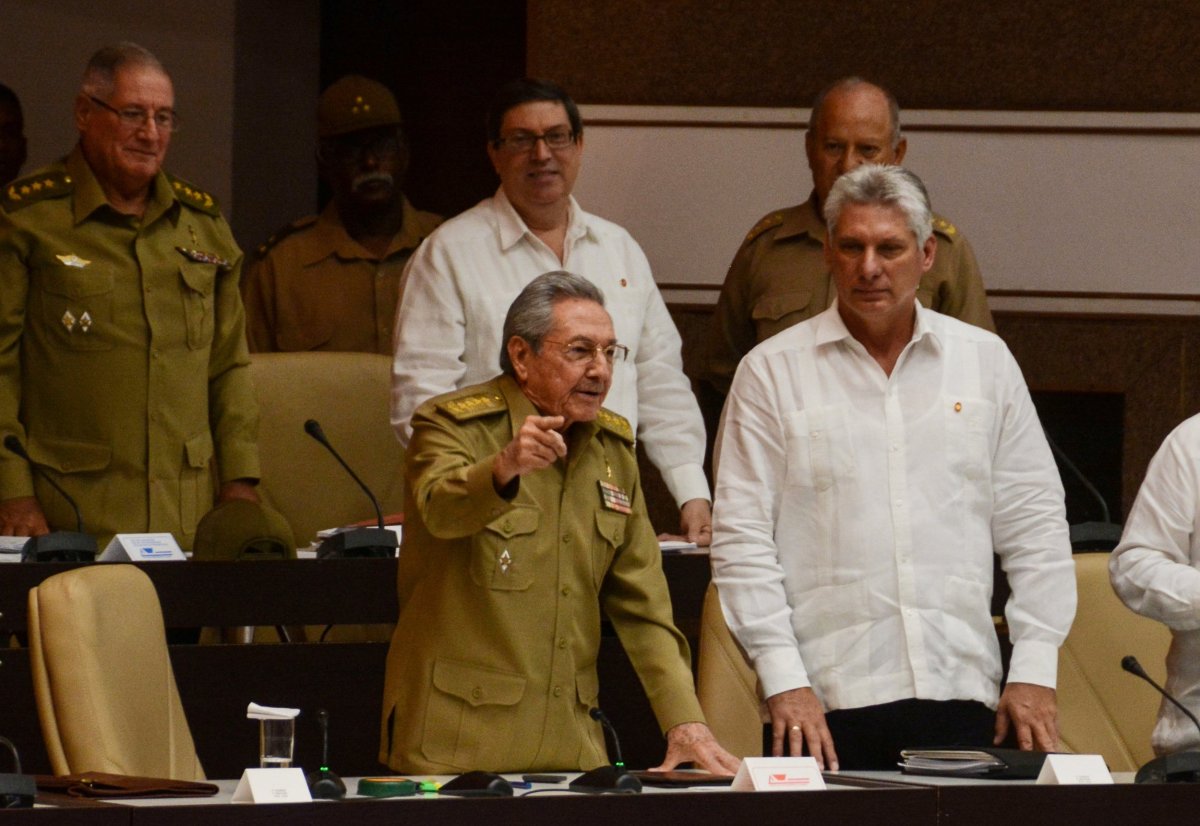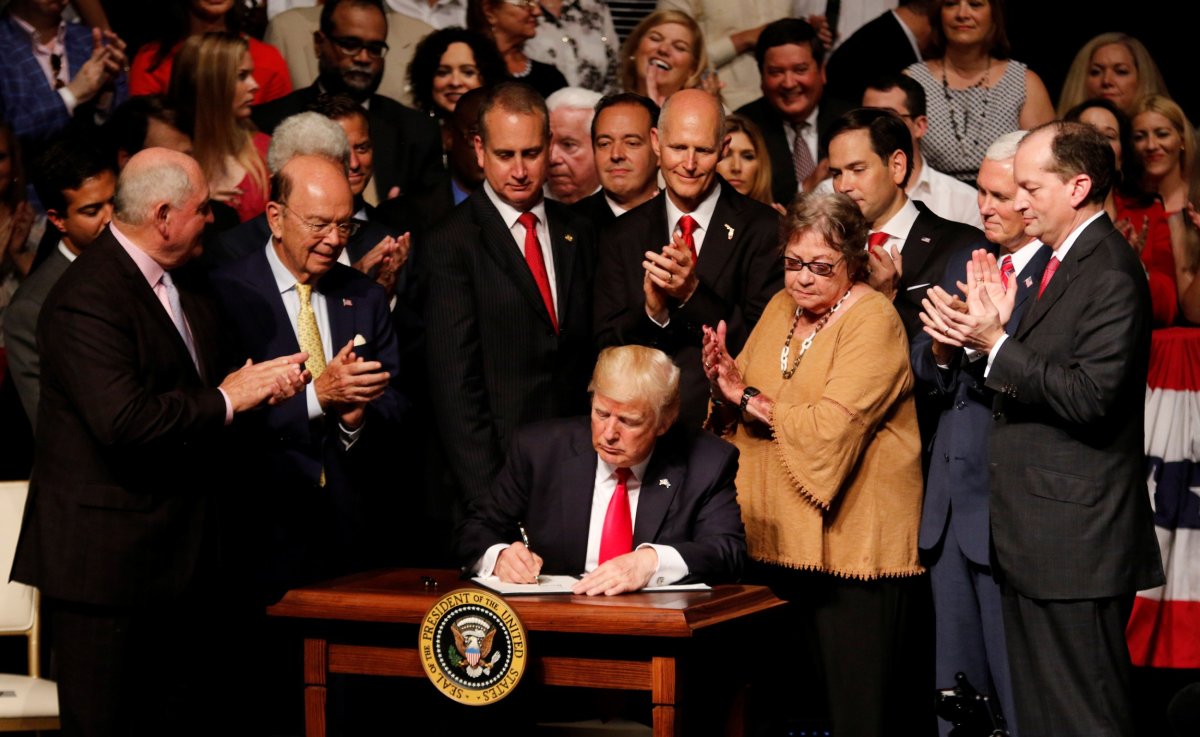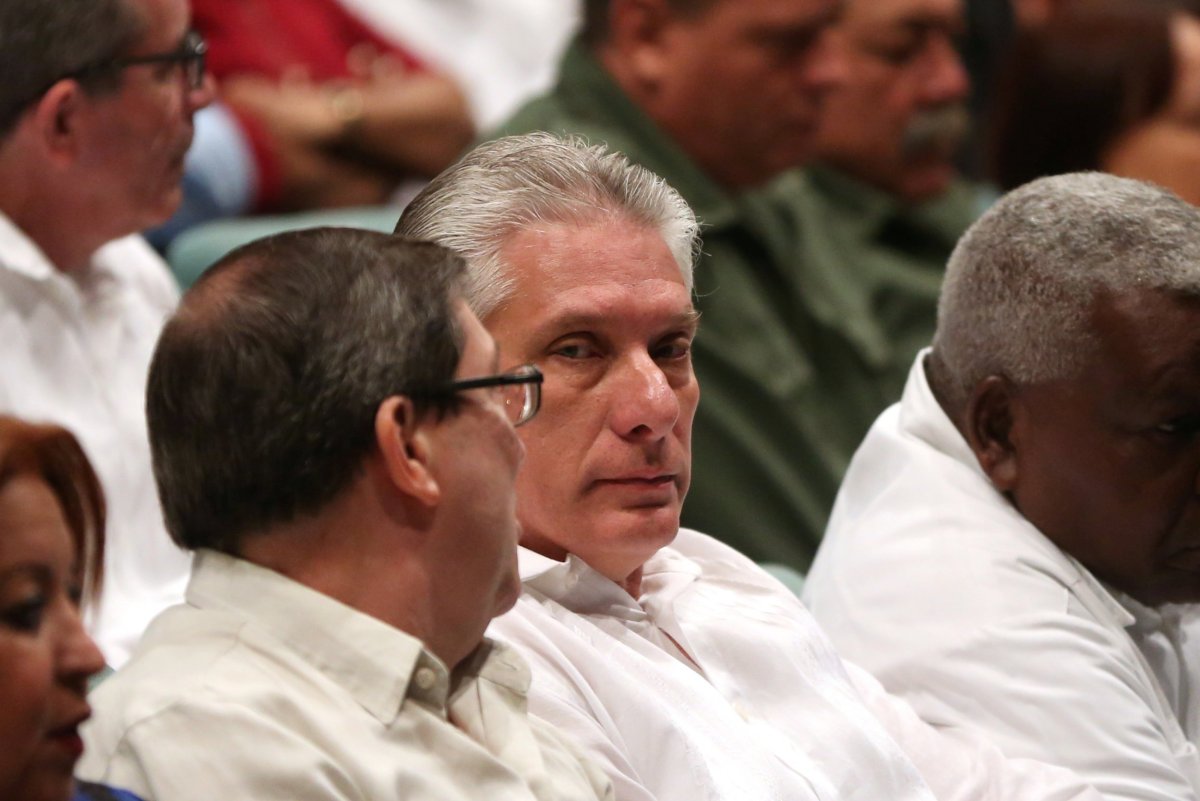Cuban President Raul Castro's enigmatic heir apparent is a rumored Beatles fan who reportedly once grew his hair long during the rise of Western pop music. He's pushed for improved internet connectivity on the island essentially frozen in time since the 1960s and advocated for gay rights.
But the chances Miguel Diaz-Canel, Cuba's vice president who is expected to take the reins from the Castro family in February for the first time in decades, will thaw President Donald Trump's modern-day Cold War with the Communist-ruled country are slim. Diaz-Canel, 57, will likely serve in a largely ceremonial role as a Castro puppet controlled by the Communist Party and restricted from opening renewed dialogue with the U.S. even if he wants to, analysts say.
Castro, 86, will be stepping down from the presidency on February 24, 2018, but not from power, said Jaime Suchlicki, director of the Institute for Cuban and Cuban-American Studies at the University of Miami. Castro will remain influential as the Secretary General of the Communist Party, the regime's most powerful decision maker.
"Diaz-Canel is not one of the top leaders of the Communist Party and he is no significant leader of the Cuban military," Suchlicki said. "He has no base of support, no popular support, no party support, no military support. So he is going to be subservient to the orders of nine or 10 generals that are running Cuba, including Raul."

Castro's anticipated departure from office comes amid the deepest freeze in Cuba-U.S. relations since the Cuban Missile Crisis in 1962. The Cuban government has been suspected of carrying out sonic attacks against U.S. embassy staff in Havana, which led to the removal of 15 Cuban diplomats from Washington in early October. And earlier last month, the U.S. voted against a U.N. resolution that underscored the need to lift an embargo against the island.
The Cuban regime has long condemned the U.S.-imposed embargo by President John F. Kennedy in 1961, which restricted trade and travel to the island. The Cuban government has estimated the sanctions, which only Congress can lift, have cost the country more than $130 billion. The U.S., however, has profited from exports to the island to the tune of roughly 1.3 billion in the past five years, according to U.S. Census Bureau data.
Most recently, Trump rolled back Obama-era policies that normalized relations between the two nations. Trump last month imposed new travel and commerce restrictions on Cuba, making it harder for Americans to visit the island nation and to do business there. The new sanctions seek to force Castro's regime to comply with U.S. law, fully restore human rights to Cuban citizens and seek to prevent the country's military, intelligence and security services from benefiting from American financial transactions.
It's unlikely Diaz-Canel will be inclined to initiate any kind of dialogue with Trump, who has demanded a complete regime change for talks to commence. Instead, the Communist Party likely will apply pressure on the new Cuban president to show no signs of weakness.
"Both sides have now become prisoners of the rhetoric and the positions taken by the [Trump] administration," said Frank Mora, director of the Kimberly Green Latin American and Caribbean Center at Florida International University in Miami.
"There's no political will on the part of Washington to return to an Obama-like policy. It would be very difficult politically for Diaz-Canel in the face of that kind of confrontation to talk about reform, because the hardliners could very well resist any of those efforts and it could threaten, in some ways, his very young presidency if he goes down that track," Mora said.

Diaz-Canel, who has maintained a very low profile, was voted in as Castro's first deputy in February 2013 at the beginning of the president's second and final five-year term. Born after the Cuban revolution in 1959, Diaz-Canel studied engineering and spent 30 years within the Communist Party and served for three years as minister for higher education.
Many suspected Diaz-Canel possessed more moderate views than Castro until a video surfaced in August, offering a rare glimpse of Diaz-Canel's seemingly hardline ideology. In a videotaped private meeting with Communist Party members in February, Diaz-Canel is seen lashing out at the U.S., Cuban dissidents and the independent media, the Miami Herald reported.
"The U.S. government ... invaded Cuba, put the blockade in place, imposed restrictive measures. Cuba did not do any of that, so in return for nothing they have to solve those asymmetries if they want relations and if they want normalization of the relations," Diaz-Canel said in the video captured and published by Cuban dissident Antonio Rodiles on YouTube.
The video is evidence Diaz-Canel is being subservient to the Communist Party, at least for now, Mora said. "Certainly in the short-term, he's demonstrating that he's not going to be pressured by the Trump administration and the United States," Mora said.

On the other hand, Diaz-Canel could simply be a pragmatist held prisioner by the Castro regime, said Marguerite Jimenez, the Washington Office on Latin America's director for Cuba, a research and advocacy organization advancing human rights in the Americas.
"I view that more as posturing than I do as necessarily a statement about his actual policy beliefs," Jimenez said, citing the video.
Trump, not Diaz-Canel, holds the key to normalizing relations between the two countries, Jimenez said.
"It depends on how the United States engages with him," Jimenez said. "New leadership on the island poses real opportunities for the United States to be constructively engaged. Unfortunately, that is not where we've seen U.S. policy going as of late."
Raul Castro's older brother, Fidel Castro, established the first communist state in the Western Hemisphere after overthrowing the U.S.-backed government of Fulgencio Batista in 1959. He ruled the country for nearly five decades before transferring power to Raul Castro in 2008. During Fidel Castro's reign, he earned a reputation as a ruthless dictator, suppressing economic and political freedoms and reducing literacy. He was credited with improving healthcare until the collapse of the Soviet Union in 1991, a crippling blow to Cuba, which had relied heavily on the Soviets for oil, machinery, food and medical supplies. Fidel Castro died in November 2016 at the age 90 of an undisclosed cause.
Moving forward, Trump might be more receptive to talks with Diaz-Canel, who is not related to Raul Castro or Fidel Castro.
"The Castro brothers have become a larger than life presence in the U.S.-Cuba issue that it is very conceivable that it will be easier to fathom, on the part of the United States, negotiating with someone who is not a Castro," Jimenez said.
Uncommon Knowledge
Newsweek is committed to challenging conventional wisdom and finding connections in the search for common ground.
Newsweek is committed to challenging conventional wisdom and finding connections in the search for common ground.
About the writer
Nicole Rodriguez is a political reporter covering the Trump Administration and immigration for Newsweek. The South Florida native, who specializes ... Read more
To read how Newsweek uses AI as a newsroom tool, Click here.








